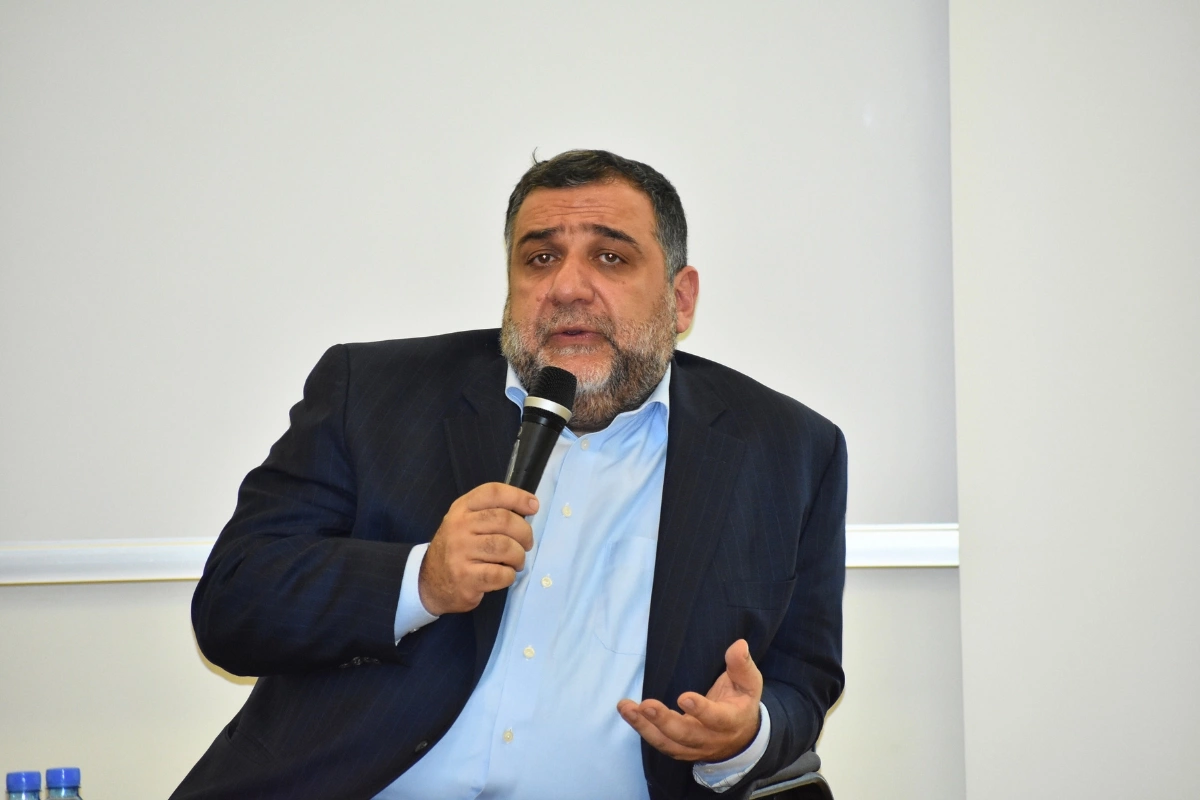
Russian-billionaire turned Armenian activist-politician Ruben Vardanyan has reportedly been nominated for the Nobel Peace Prize in a move that seems aimed at persuading the world’s media to reassess his situation: he is currently awaiting trial in Azerbaijan for “terrorism-funding” charges.
Image: Wikimedia Commons
The Nobel Peace Prize is supposed to celebrate the “person or organization that has conferred the greatest benefit to humankind in the field of peace during the preceding year.” That was great—and highly appropriate—when, for example, in 1993, it was won by Nelson Mandela following decades of leading resistance against apartheid in South Africa. Barack Obama’s 2009 award of the same prize was seen as far less convincing—after all, he had only just come to power as U.S. president at that point and thus had little chance to prove a true agent of peace. In some other years, winners have been even more controversial—at least from certain political perspectives.
The nominees for the 2024 prize have not been officially announced as yet, but press reports have leaked over 50 names already, including such highly divisive figures as former U.S. president Donald Trump, Wiki-leaks founder Julian Assange, and Space-X founder Elon Musk. However, few nominations are likely to cause such upset in Baku as that of the Russian billionaire turned Armenian politician Ruben Vardanyan (reported in the Armenian press on Monday).
In September 2022, Vardanyan renounced his Russian citizenship and moved to the area of Karabakh, which was, at the time, still under de facto administration by Armenians following the 2020 Second Karabakh War. By 4 November of the same year, he had, somewhat incredibly, risen to what the separatist authorities called ‘Minister of State,’ effectively running the shadow government of rump Nagorno Karabakh (or Artsakh as Armenians called it). Although by February 2023, he had been sacked from that position, his weeks in Khankendi (called Stepanakert by Armenians) had encouraged an increasingly strident anti-Baku posture from vocal Karabakh Armenians. Some considered that he might even be a pro-Moscow stooge sent to stir up discord and that his time in Khankendi helped undermine already fraught attempts to organize a peaceful settlement of coexistence in Karabakh. This, in turn, pushed factors towards the September 2023 actions in which Baku ended up retaking full control over rump-NK.
However, not surprisingly, Armenian and Azerbaijani sources see Vardanyan in entirely different lights. Many Armenians—including those nominating him for the Peace Prize—credit him as a “philanthropist” whose considerable financial contributions in separatist-run Karabakh were “investing in humanitarian, education, preservation of historical and cultural heritage, tourism, and infrastructure development.” Baku, however, considers many such investments very differently and has accused him of the “financing of terrorism” amongst several other crimes. Azerbaijani border guards arrested Vardanyan on 27 September 2023, and has been held by Baku ever since, awaiting trial (a detention considered illegal by his family and many other Armenians).
Therefore, as with many recent candidates for a Nobel Peace Prize, the nomination of Ruben Vardanyan should be seen less as an attempt to recognize a life dedicated to the furtherance of peace and more as a PR exercise. For Vardanyan’s supporters, it’s a new chance to attempt to persuade the world’s media to take sides on his detention, while geopolitically, it represents a continuation of the struggle for dominance between Armenian and Azerbaijani narratives of conflict in the Caucasus: Armenia painting Vardanyan as a peace-loving prisoner, Azerbaijan seeing him as one of those who has specifically stood in the way of peace.
Share on social media